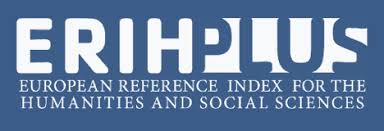№2, 2024
The purpose of this study is to evaluate the global and continental positions of e-government models in countries such as Jordan by analysing their experiences. The evaluation of the progress of e-government is carried out using a multi-practice methodology, which incorporates a variety of different procedures and techniques. The performance of Jordan is evaluated using the united nations e-government maturity index, which is comprised of the telecommunication infrastructure index, the human capital index, and the online service index. These indexes are used to compare Jordan’s performance from 2008 to 2015. The purpose of this research is to improve the capabilities of e-government by utilising previous experiences, addressing deficiencies, and making the most of potential. In addition to this, the study investigates the influence that artificial intelligence has on the confidence of users and the quality of government services that are delivered through online platforms. Specifically, the report underlines the cost-effectiveness and efficiency of adopting and utilising artificial intelligence, as well as the potential of tools and solutions that are driven by artificial intelligence (pp.30-42).
Alqudah, M.A. Artificial Intelligence in Managing the Electronic Customer Relationship and Enhancing the Level of Satisfaction with Electronic Services (June 2, 2021). http://dx.doi.org/10.2139/ssrn.3858964
Alqudah, M.A. (2021). Investment Artificial Intelligence in Decision-making Processes in the Jordanian Ministry of Interior. International Journal of Innovations in Engineering Research and Technology, 8(10), 40-53 https://doi.org/10.17605/OSF.IO/5D7KZ.
Alqudah, M.A. Towards the governance of government data using artificial intelligence (December 23, 2021). http://dx.doi.org/10.2139/ssrn.3992303.
Alqudah, M.A., & Muradkhanli, L. (2021). E-government in Jordan and studying the extent of the e-government development index according to the United Nations report. International Journal of Multidisciplinary: Applied Business and Education Research, 2(4), 365-375. https://doi.org/10.11594/ijmaber.02.04.
Arayankalam, J., Khan, A., & Krishnan, S. (2020). How to deal with corruption? Examining the roles of e-government maturity, government administrative effectiveness, and virtual social networks diffusion. International Journal of Information Management, 102203 https://doi.org/10.1016/j.ijinfomgt.2020.102203.
Caiado, R. G. G., Leal Filho, W., Quelhas, O. L. G., de Mattos Nascimento, D. L., & Ávila, L. V. (2018). A literature-based review on potentials and constraints in the implementation of the sustainable development goals. Journal of Cleaner Production, 198, 1276–1288. https://doi.org/10.1016/j.jclepro.2018.07.102.
E-Government Program - Minister of Digital Economy and Entrepreneurship. (n.d.). Retrieved March 8, 2021, from https://www.modee.gov.jo/En/Pages/eGovernment_Program
Faid, G., Tariq, M. M., Ishtiaq, A., Zeynvand, V. L., Meyer, D. F., & Máté, D. (2020). The nexus of E-government and increased productivity relative to income level comparison. Business, Management and Economics Engineering, 18(1), 88–105. https://doi.org/10.3846/bme.2019.10409.
Mohan, N., Prasad, K. D. V, Soujanya, K., Dobhal, D. C., Ali, M., & Tripathi, M. A. (2023). An Adaptive Service-Oriented Business Management Pattern Based on Machine Learning Rule ML. 2023 3rd International Conference on Advance Computing and Innovative Technologies in Engineering (ICACITE), 1672-1676. doi: 10.1109/ICACITE57410.2023.10183158.
Molnár, P. (2020). Measuring e-government and e-participation. Prof. Dr. Miskolczi-Bodnár Péter (Eds.): Jog És Állam 29. Károli Gáspár Református Egyetem Állam-És Jogtudományi Kar, Budapest https://doi.org/10.1787/19901054
Nations, U. (2020). United Nations E-Government Survey2020.UN. https://doi.org/10.18356/8bdf045f-en
Nawafleh, S., Obiedat, R., & Harfoushi, O. (2012). E-government between developed and developing countries. International Journal of Advanced Corporate Learning (IJAC), 5(1), 8-13. https://doi.org/10.3991/ijac.v5i1.1887.
OECD, O. for E. C. and D. (2003). The E-Government Imperative: OECD E-Government Studies. https://doi.org/10.1787/19901054.
Salamah, A.A., Hassan, S., Aljaafreh, A., Zabadi, W.A., AlQudah, M.A., Hayat, N., Al Mamun, A., & Kanesan, T. (2022). Customer retention through service quality and satisfaction: using hybrid SEM-neural network analysis approach. Heliyon, 8(9), e10570 https://doi.org/10.1016/j.heliyon.2022.e10570
UN E-Government Survey 2020. (n.d.). Retrieved March 21, 2021, from https://publicadministration.un.org/egovkb/en-us/Reports/UN-E-Government-Survey-2020
United Nations E-Government Survey 2020: Digital Government in the Decade of Action for Sustainable Development (With addendum on COVID-19 Response). (2020).
United Nations E-Government Survey | Multimedia Library - United Nations Department of Economic and Social Affairs. (n.d.). Retrieved March 21, 2022, from https://www.un.org/development/desa/publications/publication/2022-united-nations-e-government-survey
https://www.un-ilibrary.org/content/books/ 9789210051453/read
Wirtz, B.W., Weyerer, J.C., & Geyer, C. (2019). Artificial intelligence and the public sector—applications and challenges. International Journal of Public Administration, 42(7), 596-615. https://doi.org/10.1080/01900692.2018.1498103.





.jpg)









